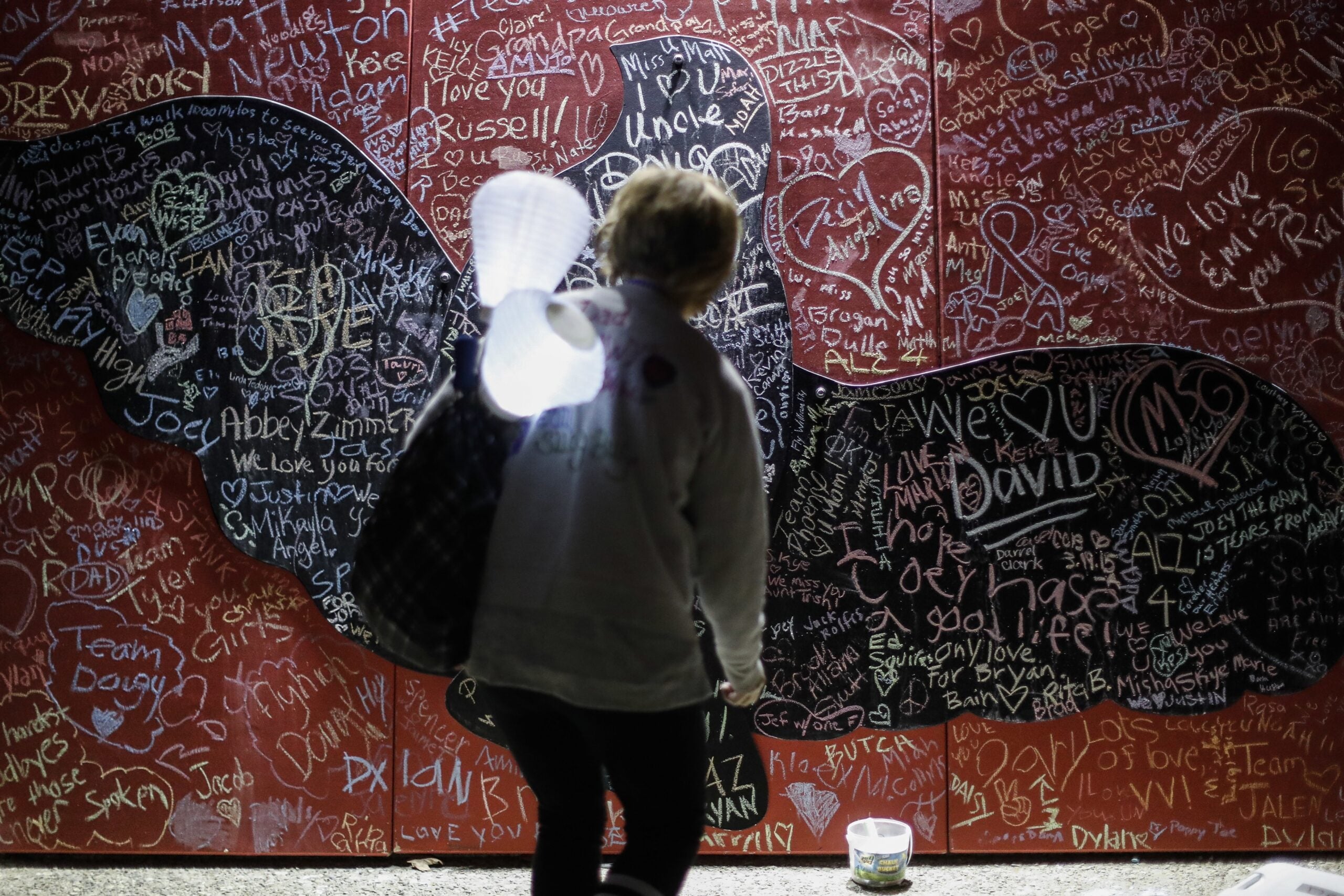Republican state Senators passed a package of bills Tuesday that would carve out exceptions to COVID-19 vaccine mandates in Wisconsin, giving more people an out if they don’t want to get vaccinated for work.
The proposals, which are likely headed for vetoes by Democratic Gov. Tony Evers, are the latest chapter in the partisan fight over public health restrictions in Wisconsin.
Under one of the plans that passed the Senate, people who quit their jobs because they don’t want to get the COVID-19 vaccine could collect unemployment insurance.
News with a little more humanity
WPR’s “Wisconsin Today” newsletter keeps you connected to the state you love without feeling overwhelmed. No paywall. No agenda. No corporate filter.
The bill follows years of Wisconsin Republicans restricting who can claim unemployment and when they can claim it. Just last month, Republicans unveiled a package of bills that would restrict unemployment benefits.
While the plan by Sen. Duey Stroebel, R-Saukville is not without controversy, it passed without debate on a party-line vote.
Another bill that passed the Senate and is now headed to the governor’s desk would ban private businesses from requiring customers to provide proof of receiving a COVID-19 vaccine. That proposal would also ban state and local governments from requiring vaccines as a condition of accessing any buildings or receiving any services.
Yet another proposal GOP Senators passed would give employees new rights when it comes to opting out of the vaccine. It would still let businesses require employees to get the vaccine, but it would also let workers opt out by showing proof that they’ve contracted COVID-19.
Sen. Mary Felzkowski, R-Irma, said other countries are beginning to recognize the power of natural immunity and said her bill was an easy call.
“Recognizing the God-given ability to fight off infections that our creator gave us,” Felzkowski said, “and to have that ability and to utilize it.”
A wide range of medical groups oppose the plan, including the Wisconsin Medical Society and the American Cancer Society.
Sen. Chris Larson, D-Milwaukee, said it fed an anti-vaccine message from Republicans that would leave more people vulnerable.
“The pandemic is largely hitting those who are unvaccinated,” Larson said.
A fourth plan that cleared the Senate Tuesday would hold businesses liable in court if they require the vaccine and it injures an employee. Research has found the COVID-19 vaccines to be safe.
Guns on school grounds
GOP lawmakers also passed a bill that would let people who have concealed carry permits keep weapons in their cars when they’re on school grounds.
The proposal, said Sen. Andre Jacque, R-De Pere, was “seeking to help parents who … have concealed carry permits be able to pick up and drop off their kids.”
Democrats voted against the plan, with Sen. Janis Ringhand, D-Evansville, saying it would not make schools safer at a time when gun violence had hurt communities across the state.
“You don’t need to carry a gun at a school,” Ringhand said. “Even if you’re on your way hunting, I think you can take the time to swing back home and pick up your gun after you’ve picked up your kids.”
Senators also sent a plan to the governor’s desk that would honor concealed carry permits from other states regardless of whether those states conduct background checks.
Both proposals face likely vetoes by Evers.
‘Foreign missions of China’ at the University of Wisconsin
The Senate also passed a set of bills that Republicans said would protect the University of Wisconsin System from Chinese espionage while Democrats called the plans unnecessary and xenophobic.
One of the bills would ban the admission or employment at the UW for members of China’s armed forces, known as the Chinese People’s Liberation Army.
Another would ban “foreign missions of China” at UW System schools and block the UW System from being involved with “Communist Chinese recruitment or propaganda programs.”
A third would create new disclosure requirements for UW institutions relating to contracts and fights from foreign sources.
Sen. Roger Roth, R-Appleton, said he sponsored the plans because universities are “soft targets” for Chinese agents looking to steal American technology.
“There is a clear distinction between the Chinese people in the oppressive government regime that uses and abuses its citizens into committing acts of crime in espionage at American universities on its behalf,” Roth said.
Sen. Jon Erpenbach, D-West Point, said the plan would do nothing to protect the university and was a waste of time.
“Simply introducing this legislation and listening to the verbiage that was used … implies that this is happening in campuses all over Wisconsin,” Erpenbach said. “It’s not.”
All three proposals head next to the state Assembly.
Wisconsin Public Radio, © Copyright 2025, Board of Regents of the University of Wisconsin System and Wisconsin Educational Communications Board.







